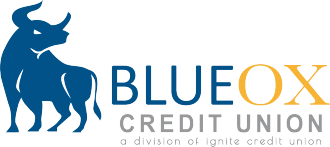is debt consolidation right for me?

Did you know that, on average, Americans carry about $6,300 in credit card debt? This situation can be stressful, scary, and may feel unavoidable - but it doesn't have to be. There are ways to set yourself up for financial success! If you're currently sitting under a mountain of debt, one solution may be a debt consolidation loan.
what is debt consolidation?
Debt consolidation is using new financing to combine multiple debts into a single monthly payment. If done correctly, this tactic can help you pay off your debt faster and save you money in interest rate fees. Also, reducing your monthly bill to one lender is a helpful and convenient way to manage debt.
It is quite common for credit cards to have high interest rates, especially if your credit score is not excellent. According to the Federal Reserve, the average interest rate is around 23%. If you have a few different cards, you could end up paying a substantial amount just in interest to manage your debts.
A higher interest rate can lead to a longer time to pay off your debt and result in more money going toward interest, particularly if you are only making the minimum payments. However, consolidating your debts into a single loan with one payment could save you a significant amount of money over time!
For more information about debt consolidation, check out our blog: everything you need to know about debt consolidation
when debt consolidation is a good financial strategy
- Multiple debts - If you have multiple loans that you pay monthly, you could benefit from switching to one convenient payment.
- High Interest Rates - If one or more of your debts have a higher interest rate, refinancing, a balance transfer, or bringing multiple high rates down to one can save you money.
- Fixed Payments - Consolidating debt can often help you switch your loans from a variable rate to a fixed interest rate, giving you a better idea of repayment terms and the amount of money you'll spend over the life of the loan.
pro tip: The tricky part is not racking up a new balance on the card you just transferred from – that would defeat the whole purpose! While closing the card may negatively impact your credit score, simply cutting it up will not affect it. If you don't trust yourself to refrain from accumulating a new balance on the old card, consider hiding it or cutting it up. Additionally, make sure to delete any card information from your online shopping accounts to eliminate the possibility of creating more debt. Be patient! It usually takes about six months of good payment history for your credit report to catch up and raise your score.
what if debt consolidation is not the right move?
A debt consolidation loan is not always a one-size-fits-all solution. There are definitely instances when it would be a good idea to seek expert advice. For more information about debt consolidation—or any other debt management approaches—contact our partners at GreenPath Financial Wellness!
GreenPath has over 60 years of experience helping people build financial health and resiliency. Their NFCC and HUD-certified counselors can provide options for managing credit card debt, student loans, homeownership, and more!
Start your path to a bright financial future by clicking the button below or calling 877-337-3399 to speak to one of their kind, caring counselors. It's FREE, no pressure, and 100% confidential!
« Return to "BlueOx Blog"
